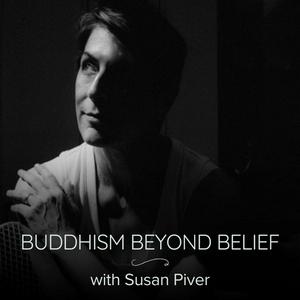In this episode, I talk about something that’s been making me a little grumpy: how meditation is often reduced to stress relief. While that’s a real benefit, it misses the deeper purpose — waking up to reality itself in order to be of benefit to others.Meditation isn’t a self-improvement plan. It’s a path of presence — one that begins with self-awareness but is meant to open outward, toward others and the world. When practice stops at “me,” it can harden into self-absorption. When we remember its spiritual heart, it becomes a way to connect — energetically, compassionately, courageously. This has nothing to do with religion.To see meditation as a spiritual practice, it helps to examine (to a very small degree) the nature of mind itself. After all, mind is what we work with during practice and this is different than mere thought. I also share how the enneagram offers a roadmap for seeing ourselves and others more clearly. We explore:The three centers of intelligence — gut, heart, and headThe three instinctual drives — self-preservation, social, and sexual/intimateThe three responses to pain — toward, against, and away (known in Buddhism as the three poisons)These perspectives remind us that our differences are not barriers but gateways to understanding and that the point of practice is to blend with animate energies rather than wall ourselves off from them.And finally, I share a bit of music. I talk about Peter Green, the brilliant early member of Fleetwood Mac, whose songs “Tribal Dance” and “Albatross” embody the powerful qualities of spaciousness, warmth, and directness. His playing reminds me that true artistry, like true practice, is about attunement rather than control.Highlights:Why meditation is more than stress reductionUsing the enneagram to deepen compassionThe true nature of mindThe “three poisons” in Buddhist teachings and how they obscure clarityMentioned:The Buddhist Enneagram by Susan Piver“Tribal Dance” by Peter Green “Albatross” by Peter GreenWatch this episode on video If you’d like to see me share my reflections, the video version is available here.Ask me a questionYou can send your questions via Instagram DM or through ourIf you enjoyed this episode: Please rate, review, and share it with a friend who’s curious about mindfulness, spiritual commitment, or the Buddhist path. For more on Buddhist teachings and how our humanity isn’t necessarily in our way, sign up for my free weekly newsletter or join the Open Heart Project sangha for more connection with community and with me. If this podcast has been meaningful to you, it would be great if you would subscribe, give it a five star rating and share it with a friend. To join or learn more about The Open Heart Project please visit openheartproject.com. Thoughts? Email us at
[email protected] Produced by Citizens of Sound Music by: Derek O'Brien©Open Heart Project


